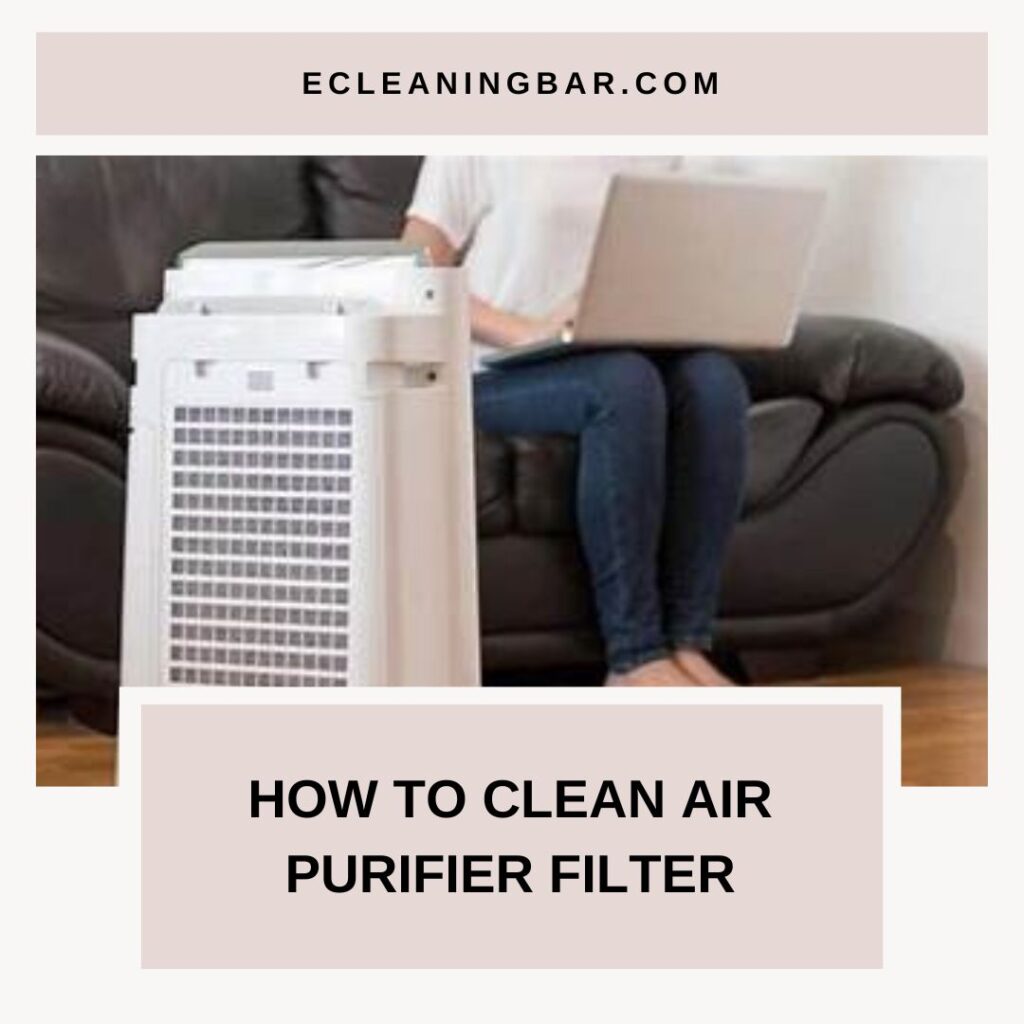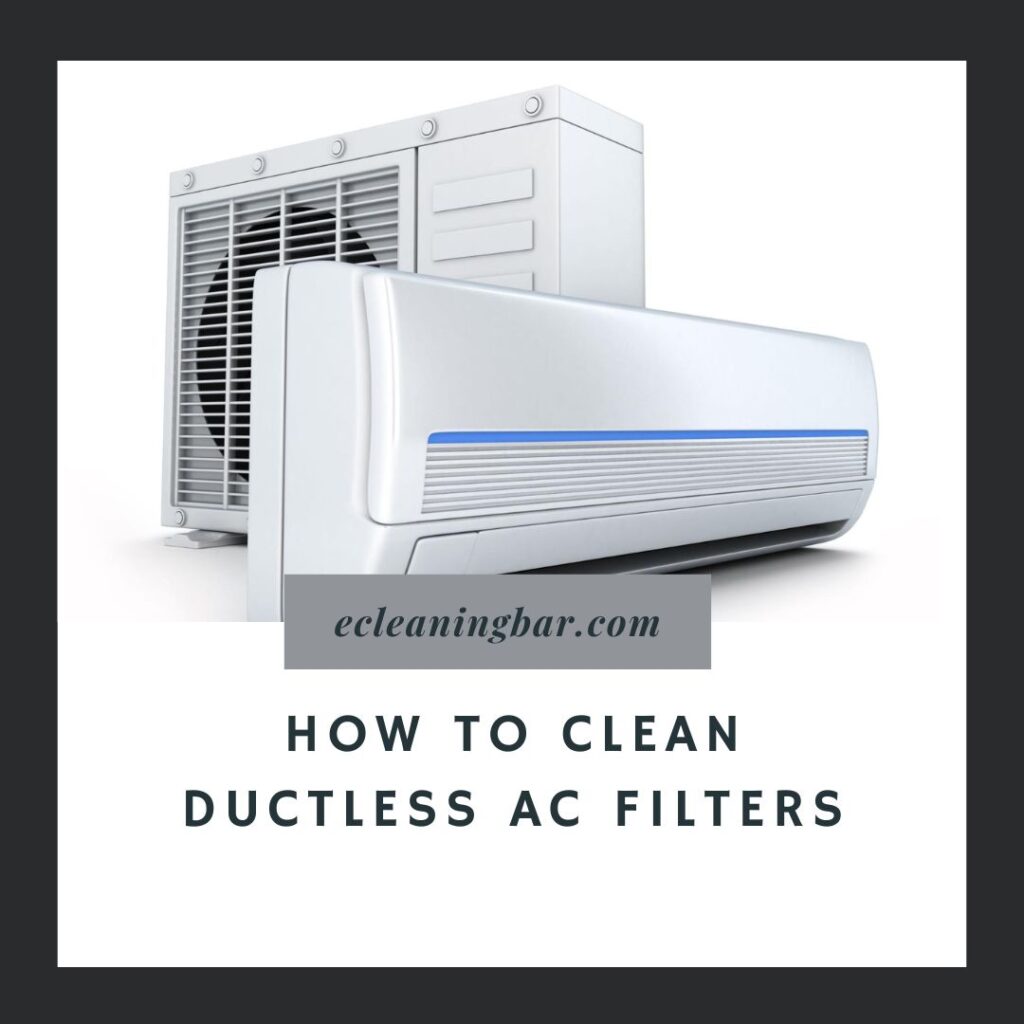Due to its low weight, excellent thermal conductivity, strength, and general machinability, aluminum components have found extensive use in automobiles. One major drawback of aluminum is its aesthetic value it degrades due to oxidation when exposed to environmental factors. To avoid long-term damage and get the most out of aluminum engine parts, it’s important to know how to restore them to like-new condition. Here we’ll have a look at the factors that lead to oxidation in engine components, the cleaners that work best and those that don’t, and the best ways to remove oxidation step by step.
An Overview Of Aluminum’s Role In Automotive History:
Originally utilized in engines in 1901, aluminum has been a staple in the automotive industry for more than a century. A sports car body debuted in 1988 at the Berlin International Motor Show.
The prohibitive cost of aluminum meant its introduction was gradual over the following 60 years. It wasn’t until the 1961 Buick 215, which had an eight-cylinder V8 aluminum engine, that the advantages of using aluminum in mass-produced vehicles were truly appreciated.
Due to its ability to cut body weight by as much as 239 kg and significantly increase fuel efficiency, the lightweight advantages of aluminum-bodied cars caused their production to soar in the race-car industry. In today’s automotive industry, aluminum ranks second most commonly utilized material, only behind steel. Why has aluminum become such a popular choice for increasing speeds, lowering weight, and improving fuel economy? It’s easy to understand why, with 1kg of aluminum replacing up to 2kg of cast iron or steel.
Metal With Oxide Layers:
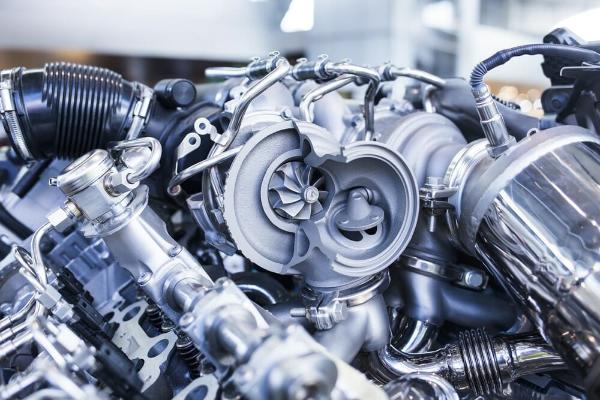
The oxidation of aluminum in your automotive parts is a cosmetic problem rather than a structural one. However, since aluminum is a metal that is used so frequently in everyday life, you will want to remove it once it has oxidized so that your vehicle doesn’t look boring.
Iron and steel oxidize to rust when exposed to water and other liquids, which is a kind of corrosion. Although aluminum does not rust since it does not contain any iron or steel, it can be anodized, which is the process of applying a powdered white coating to the surface of aluminum to protect it against corrosion. You must clean and maintain your vehicle’s aluminum components correctly to prevent pitting, a process where rust creates tiny holes in the metal.
What Are Aluminum Cleaners, and How Do You Use Them?
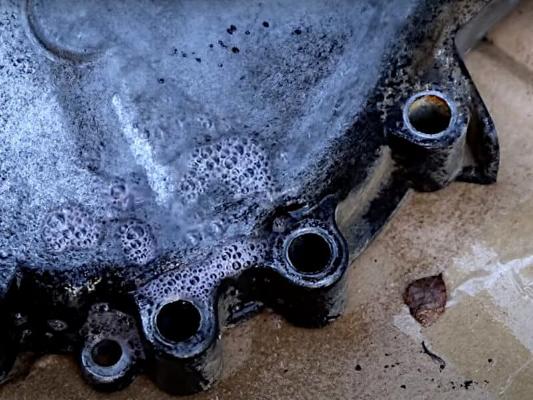
While high-chemical cleaners are fine for aluminum that isn’t severely oxidized, there are a few additional approaches you can take to clean your aluminum engine components healthily and keep them looking good.
Working in a well-ventilated location, using protective eyewear and gloves, and staying away from open flames are all crucial safety precautions to take while cleaning aluminum engine parts. To manually remove as much dirt and rust as possible from aluminum, a soft wire brush, and slow strokes can be used.
You might be thinking that steel wool would do the trick, but it sticks to aluminum and forms rust, which could eventually destroy the finish of your aluminum engine parts. So, it’s best to stay away from steel wool. If you treat and care for your aluminum components correctly, you can stop the oxidation stages from leaving black or darker stains on them. The best way to keep your automobile clean and free of oxidation-causing filth is to establish a regular cleaning schedule.
Oxidized Aluminum Cleaning Instructions:
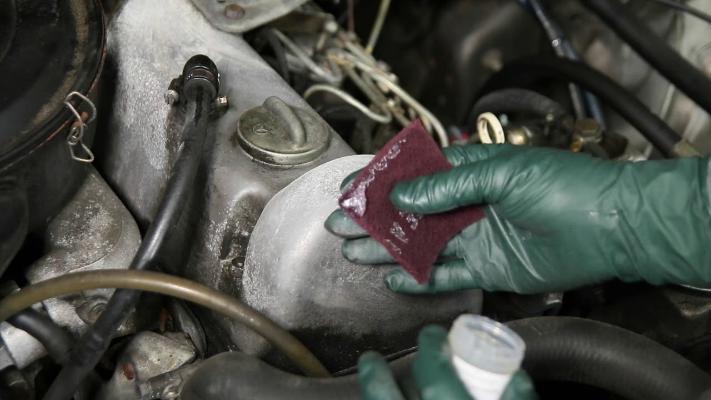
Before you use any product on aluminum, be sure it is safe to use on aluminum only; iron and other metals won’t work as well on aluminum. To make sure you’re cleaning and treating the aluminum oxidation directly, you might want to use a powerful water jet to remove dirt from the surface before you begin these processes.
Everything you’ll need is:
- Delicate bristle brush
- Removing Oxidation with Vinegar
- Different garments
- Use a powerful water jet to remove any debris from the parts. If that doesn’t work, try using vinegar or another natural cleaning solution. If that doesn’t work, then go on to use industrial-strength aluminum cleansers.
- Soak your components for a few minutes in a mixture of two tablespoons of vinegar and one quart of water that has been boiled for fifteen minutes.
- A cloth soaked in the liquid can be scrubbed across the surface to remove oxidation if you are employing this procedure for a broad area. After you accomplish these steps, be careful to wipe up any vinegar residue.
- An alternative to vinegar that works just as well is a combination of lemon juice and salt. The oxidized region can be easily cleaned by rubbing a salt-soaked lemon slice over it.
- Following these steps won’t guarantee the intended result, but if they don’t, you can try a product specifically made to eliminate oxidation, such as the one below.
Always Remember:
- Make sure you’ve rinsed and dried any residue from the other ways before trying this one.
- Work in a well-ventilated location while wearing protective gloves.
- To remove oxidation from aluminum, apply the product, let it set for a few minutes, and then rub it clean with a cloth.
- After you’re done, you can use wax to stop the oxidation process in its tracks
Why It’s Beneficial To Keep The Engine Block Clean:
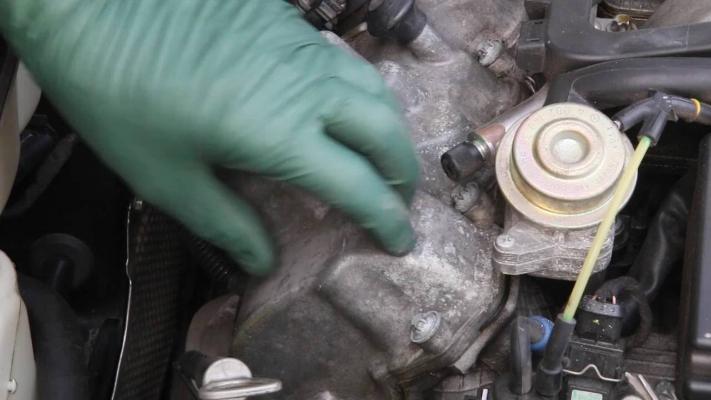
In terms of efficiency and performance, there are a lot of upsides to keeping the engine block clean. A few important advantages are these:
- The engine’s overall efficiency is enhanced by better heat dissipation, made possible by a clean engine block. The engine block may avoid overheating and produce its maximum power when dirt and debris are removed from it, allowing it to transmit heat more effectively.
- Protecting Aluminum Engine Blocks From Corrosion:
Corrosion can occur on aluminum engine blocks due to exposure to certain chemicals or extreme weather. The engine block’s structural integrity and protection from corrosion are both enhanced by routine cleaning, which removes any corrosive compounds that may have built up.
- The lifespan of your aluminum engine block can be greatly increased by keeping it clean. By keeping them out of the engine, dirt and pollutants prolong their useful life. As a result, you’ll spend less time and money fixing problems and less time worrying about the engine breaking down altogether.
- Enhanced Fuel Economy:
With a clean engine block, combustion inside the engine is optimized, which improves fuel economy. The engine runs more efficiently with less friction and fuel consumption when it is clean and clear of debris. The money you save at the pump can be substantial if this happens.
FAQs:
How Can I Clean The Metal Block Of My Engine?
To clean aluminum, a solution of equal parts vinegar and water is ideal. In conclusion, keeping the aluminum engine block clean is essential to extending its life and maximizing its performance. If you want to clean the engine block surface of grime, grease, and corrosion, this is the way to do it.
If The Engine Block Is Unkempt, How Can It Be Cleaned?
Use sandpaper or a wire brush on tough stains. The best way to avoid problems caused by a filthy engine block is to maintain it regularly. You can maximize your vehicle’s performance and extend its lifespan by regularly cleaning and maintaining the engine block.
An Aluminum Engine Block Requires Regular Maintenance For What Reasons?
If you want your aluminum engine block to last as long as possible and keep running smoothly, you must maintain it regularly. The engine block is susceptible to damage and decreased performance as a result of the buildup of dirt, debris, and other pollutants.
Conclusion:
To extend the life of your copper hood and keep it looking great, it is vital to clean and maintain it regularly. Your copper hood may be cleaned and polished to perfection by following the easy procedures given in this article.
Make a natural cleaning solution with salt and vinegar; then, carefully rub it into the hood’s surface. Allow it to sit for a few minutes, and then remove any debris and filth with a gentle cloth or sponge.
Use a wax sealer to shield it from further oxidation. You can keep the luster of your copper hood by cleaning it regularly with a damp cloth. Keeping your copper hood looking its best has never been easier than with these pointers. If you want to show your kitchen some love, you should make sure your copper hood is always clean.
